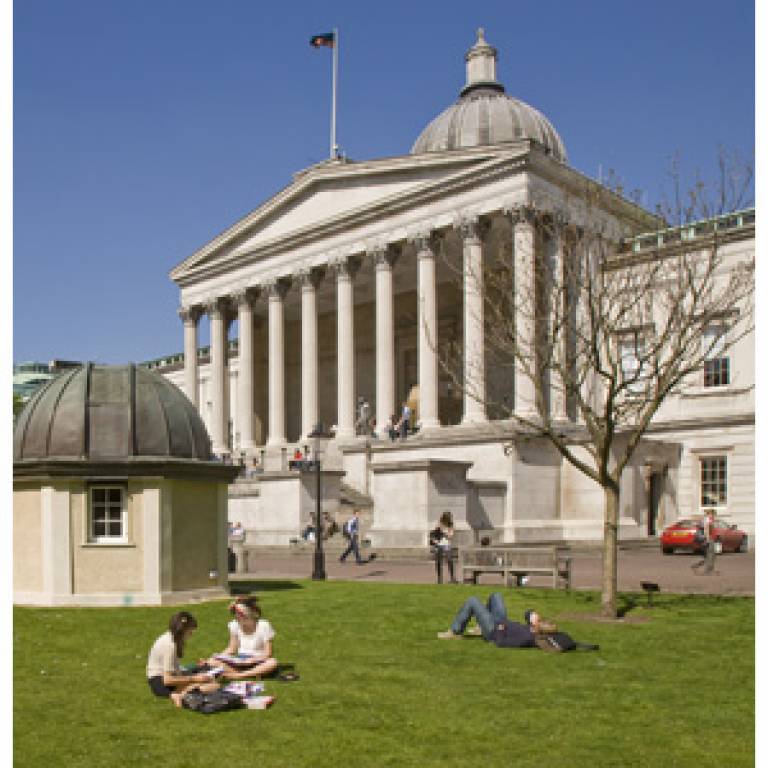New multi-million pound research hub for infection and immunity
5 November 2012
Work is underway to create the first phase of a multi-million pound research centre which aims to give patients quicker access to the latest innovative therapies for a range of diseases.

The Institute of Immunity, Infection and Transplantation, a partnership development between UCL and the Royal Free London NHS Foundation Trust, will see world-leading research and clinical trials being brought together in a purpose-designed centre at the Royal Free Hospital.
The research taking place concentrates on developing vaccinations, gene therapy and cell therapy to target cancer, chronic infections (such as HIV, viral hepatitis and tuberculosis), auto-immune diseases (including diabetes, scleroderma and inflammatory bowel disease) and rare diseases such as immunodeficiency, haemophilia and amyloidosis, as well as new types of transplantation.
Professor Margaret Johnson, clinical director for HIV/AIDS services at the Royal Free and professor of HIV medicine at UCL, said: "The vision for the institute is to facilitate and advance 'bench to bedside' translational research - essentially translating research into practice. This means that through clinical trials, patients will have access to the latest innovative treatments developed by our on-site researchers which are not yet available anywhere else, instead of having to wait until they become mainstream treatments.
The Institute of Immunity, Infection and Transplantation will be a hub for experimental medicine, transforming novel research concepts into new diagnostic tools and therapies for patients.
Professor Hans Stauss, UCL Immunology
"The first phase of the institute will enable us to co-locate the groups that are currently conducting research in the areas of immunity, infection and transplantation at the Royal Free campus of UCL alongside clinical services. Working alongside each other will stimulate joint working between researchers and clinicians, helping to create a rich and conducive environment in which to conduct research. It will also enable synergies between research projects."
Professor Hans Stauss, head of the UCL Research Department of Immunology and head of clinical immunology at the Royal Free, said: "The institute will be a hub for experimental medicine, transforming novel research concepts into new diagnostic tools and therapies for patients.
"The first phase will enable us to bring together our clinical and research expertise in state-of-the-art facilities, enhancing the quality of our research. As we move forward with phase two, we hope to attract even more world-renowned experts to our institution and broaden and advance the range of research that is currently taking place."
The first phase involves the refurbishment of an area on the second floor of the hospital to create state-of-the-art laboratories, clinical space and a clinical trials unit. New academic appointments have also been made to strengthen research on the Royal Free campus, including three new professors, a reader and a group leader.
Work on the first phase is due to be completed by April next year and the institute should be operational by June. The second phase of the project would see the scale of the facility increased with the construction of a brand new building. A £22million fund-raising campaign for this has been launched by the Royal Free Charity.
Chris Burghes, chief executive of the charity, said: "Phase two of the institute would enable us to increase the scale and the ambition of the facility, with more than 3,500 square metres of research space. Additional facilities would allow us to further increase our research in these areas so even more patients could benefit in the long term."
-Ends-
Media contact: David Weston
Links:
 Close
Close

